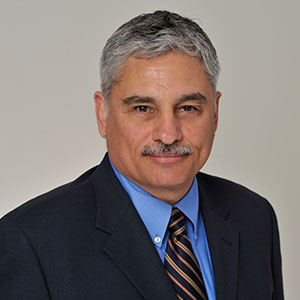To purchase this video please click “Add to Cart”.
Login to watch this video if you have a subscription. Learn more about subscriptions.Tune into the second part of this Practice Management seminar. Quinn Ross discusses how to integrate a 4-day work week into your practice, and Ray Leclair covers identification verification best practices. Gilbert Whiteduck presents “Call to Reflection: What You Can Do About The Reconciliation Gap.”

Ray Leclair joined Lawyers’ Professional Indemnity Company (LawPRO) in June of 2008 in the role of Vice President, TitlePLUS, and as of May, 2012 became Vice President, Public Affairs, responsible for government relations efforts at LawPRO.
Formerly General Counsel for the Kanata Research Park Corporation, a development company and major commercial landlord in Ottawa, Ray has practised in both major national law firms and as a sole practitioner, and was a part-time professor at the University of Ottawa Law School and Cité Collégiale instructing the French language portion of the real estate law course. He also served for 15 years as the Ottawa senior instructor for the French and English Real Estate Sections of the Bar Admission Course and member of the Law Society of Upper Canada’s Solicitor Advisory Group, Licensing Process.
Called to the bar in 1984, Ray is Past-Chair and remains an active participant of both the National Real Property Section of the Canadian Bar Association and of the Real Property Section of the Ontario Bar Association, past Co-Chair and remains a member of the Working Group on Lawyers & Real Estate, and President of the Ontario Real Estate Lawyers Association (ORELA). Former member of the Ontario Bar Association Council, past executive member of CBA’s National Sections Council, past member of its budget committee and formerly Vice President of the North American Bar-related® Title Insurers, past President of the Advisory Committee for the Cité Collégiale Legal Assistants Program. Ray volunteered as Manager of the fundraiser TOM* MensFashion4Hope and a VIP & Sponsor Relations Officer for semi-annual Toronto Men’s Fashion Week (TOM*). Ray is and has been a frequent speaker/presenter, in French or English, in numerous programs on various real estate and other law related topics in Canada and the United States.
Quinn Ross does not tolerate bullies and he’s got the scars to prove it. After a few “viscerally satisfying” schoolyard encounters, it occurred to Quinn that there had to be a better way to deal with conflict. Law, it seems, was inevitable. Out of the gate, Quinn was a successful litigator at The Ross Firm, with a focus on property, expropriation and employment cases. Over time, as the firm grew, Quinn has shifted his legal focus to business law: corporate commercial transactions, real estate and wills and estates. He has guided Ontario clients in transactions with parties worldwide, including China, Africa, Europe, South America and the United States, to mention a few. Quinn regularly incorporates, reorganizes, structures financing, merges, and purchases and sells federal and provincial corporations.
Gilbert Whiteduck has been a trailblazer for Indigenous social justice and education during a long and distinguished career in public service. Whiteduck excelled in the field of social work and graduated with an honours Bachelor of Social Work from Carleton in 1997. Before that, he received aBachelor of Education From the Université du Québec à Chicoutimi in 1985 and aMaster of Education From the University of Ottawa in 1991. A committed educator, he has served as a teacher, guidance counsellor, school principal and director of education during 33 years in the education system. Whiteduck also played a pivotal role in his Kitigan Zibi Anishinaabe community as a long-serving band council member and as chief from June 2008 toApril 2015. He has supported First Nations education through his service as a senior education advisor with the First Nations Education Council and as president of the First NationsConfederacy of Cultural Education Centres. He is presently serving as the Treatment Co-ordinator at the Wanaki Treatment Centre, providing help to First Nations and Inuit people with addiction issues.